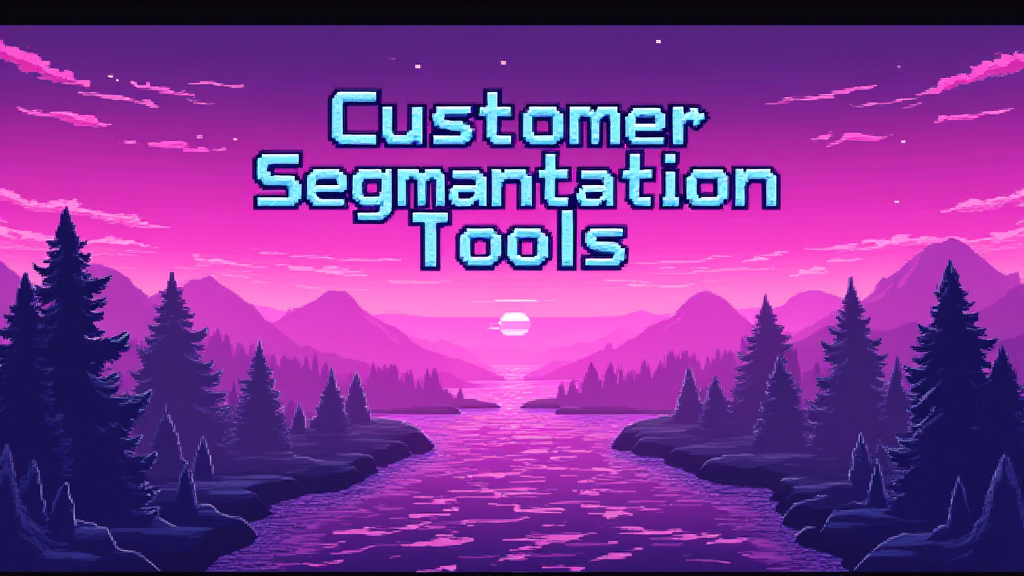Customer Segmentation Tools: Unlocking Insights

Published on: October 01, 2024
What are Customer Segmentation Tools? 🔍
Customer segmentation tools are sophisticated software platforms that analyze vast amounts of customer data to identify patterns and group customers into meaningful segments. These tools leverage various data points, including demographics, purchase history, browsing behavior, and engagement metrics, to create a comprehensive view of your customer base. For more insights, check out customer insights.
Key Features of Customer Segmentation Tools:
- Data Integration: Ability to collect and consolidate data from multiple sources
- Advanced Analytics: Utilization of statistical models and machine learning algorithms
- Visualization: Interactive dashboards and reports for easy interpretation
- Predictive Modeling: Forecasting future customer behavior and trends
- Real-time Segmentation: Dynamic updating of segments based on new data
Why are Customer Segmentation Tools Important? 🎯
In today's competitive landscape, one-size-fits-all approaches are no longer effective. Customer segmentation tools provide numerous benefits:
- Personalized Marketing Campaigns
- Improved Customer Experience
- Efficient Resource Allocation
- Enhanced Product Development
- Increased Customer Retention
Types of Customer Segmentation 📊
Customer segmentation tools can perform various types of segmentation:
| Segmentation Type | Description |
|---|---|
| Demographic | Age, gender, income, education |
| Behavioral | Purchase history, product usage, brand interactions |
| Psychographic | Lifestyle, values, interests, personality traits |
| Geographic | Location, climate, urban/rural |
AI-Powered Customer Segmentation Tools 🤖
The advent of artificial intelligence has revolutionized customer segmentation. AI-powered tools can:
- Process vast amounts of data in real-time
- Identify complex patterns and correlations
- Predict future customer behaviors with higher accuracy
- Continuously learn and adapt segmentation models
According to a recent study, businesses using AI-powered segmentation tools saw a 20% increase in customer engagement and a 15% boost in sales conversion rates.
Choosing the Best Customer Segmentation Tools 🏆
When selecting a customer segmentation tool, consider the following factors:
- Integration capabilities with your existing tech stack
- Scalability to handle growing data volumes
- User-friendliness and intuitive interface
- Advanced analytics and AI capabilities
- Customization options to fit your specific needs
- Robust reporting and visualization features
Implementing Customer Segmentation Tools in Your Strategy 💡
To effectively implement customer segmentation tools in your sales and marketing operations:
- Clearly define your segmentation objectives
- Ensure data quality and consistency
- Train your team on using the tool effectively
- Regularly review and refine your segments
- Use insights to inform all aspects of your business strategy
By leveraging customer segmentation tools, businesses can gain a competitive edge, delivering targeted experiences that resonate with their audience and drive growth.
Questions to Consider 🤔
As you explore implementing customer segmentation tools in your sales or marketing stack, ask yourself:
- What are our primary goals for customer segmentation?
- How will we integrate segmentation insights into our existing processes?
- Which data sources do we need to connect for comprehensive segmentation?
- How will we measure the success of our segmentation efforts?
- What training or resources do our teams need to effectively use these tools?
















